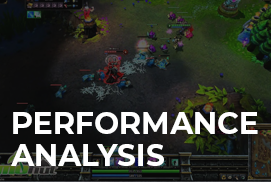

As esports continues to grow in popularity and become more competitive, teams are constantly looking for ways to gain an edge over their opponents. One area that has become increasingly important is performance analysis, and a career as a performance analyst in the esports industry is an exciting and rewarding option for those interested in the field.
Performance analysts play a crucial role in esports teams, using data and analysis to help improve player and team performance. They are responsible for gathering and interpreting data on player and team performance, identifying areas for improvement, and developing strategies and tactics to help the team succeed.
One of the key responsibilities of a performance analyst is to analyze data from games and tournaments to identify trends and patterns. This data can include things like player statistics, team performance metrics, and gameplay footage. By analyzing this data, performance analysts can help identify areas where players and teams need to improve, such as individual skills, team communication, or strategy.
Performance analysts also work closely with coaches and players to help them improve their performance. They may use data to identify specific areas for improvement, and then work with players and coaches to develop training programs or strategies to address those areas. For example, a performance analyst may identify that a player is struggling with a certain aspect of the game, such as accuracy or decision-making, and then work with the player to develop targeted training exercises to improve in that area.
In addition to working with players and coaches, performance analysts also collaborate with other members of the esports organization, such as team managers and owners, to help develop overall strategies for the team. They may use data to identify areas where the team is strong or weak, and then work with other members of the organization to develop plans to address those issues.
To be successful as a performance analyst in the esports industry, candidates should have strong analytical skills, an understanding of statistical analysis and data visualization, and experience working with data and databases. They should also be familiar with esports games and the competitive scene, and have a passion for helping players and teams improve.
Overall, a career as a performance analyst in the esports industry is an exciting and rewarding option for those interested in combining their passion for esports with their skills in data analysis and strategy development. As the esports industry continues to grow and become more competitive, the demand for skilled performance analysts is likely to increase, making this a great time to pursue this career path.
